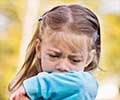Discover the risks and guidelines of outdoor exercise in areas with air pollution. Learn how the Air Quality Index guides your fitness routine for a healthier lifestyle.
- The Air Quality Index (AQI) helps to determine the safety of outdoor exercise
- Learn AQI-based guidelines—from safe ranges to hazardous conditions
- Breathing polluted air during outdoor exercise can lead to respiratory issues and health risks
The health effects of exercising in air pollution
Go to source).
Air Quality Index Helps Determine if it is Safe to Exercise Outdoors
The Air Quality Index (AQI) is one of the most reliable sources for determining whether it is safe to exercise outside. For the uninitiated, AQI is similar to Yelp's air rating, but instead of stars, we get color-coded categories. “The specific AQI level considered unsafe for outdoor workouts can vary depending on individual sensitivity, but an AQI above 100 is a cautionary range,” Dr. Azmat Karim, consultant, pulmonary critical care and sleep medicine, Fortis Escorts, Okhla Road, New Delhi.AQI-Based Guidelines for Outdoor Exercise
Good (0-50):
The air quality is good, making outdoor exercise safe.Moderate (51-100):
Moderately high AQI may, however, have an effect on your breathing during outdoor exercise, especially if you have asthma or allergies (2✔ ✔Trusted SourceAir pollution, physical activity and health: A mapping review of the evidence
Go to source). Those who are extremely sensitive should reconsider engaging in severe or extended physical activity.
Unhealthy for Sensitive Groups (101-150):
Pollutant concentrations may be harmful to those in sensitive groups, particularly those with heart or lung problems. To reduce pollution exposure, opt for indoor exercise or minimize extended and severe outdoor activities.Unhealthy (151-200):
Pollutant levels can cause health issues for the general public. Outdoor exercise is not advised.Very Unhealthy/Hazardous (201-500):
The air quality has deteriorated to the point where health warnings are required. Staying indoors with windows closed or temporarily transferring to a better-air-quality region is advised.Effects of Breathing in Polluted Air
Dr. Karim explained that exercising outdoors in poor AQI conditions can have various adverse effects on health. “Breathing in polluted air can lead to respiratory issues, aggravate pre-existing conditions, and reduce exercise performance. Short-term effects may include coughing, wheezing, and irritation, while long-term exposure can increase the risk of chronic respiratory andAir Pollution's Effects on the Human Respiratory System
Go to source). It’s important to monitor AQI levels and consider indoor alternatives when air quality is poor.”
If you are wondering whether it's safe to work out indoors, such as in a gym or at home, because outside air can get in, Dr. Sudhir Kumar noted on Twitter that staying indoors is safer than venturing out. Air purifiers in the house and at the gym have the potential to improve AQI.
Dr. Asmita Mehta, professor and HOD, Dept. of Respiratory Medicine, Amrita Hospital, Kochi suggested avoiding certain activities when the AQI is unsafe. “These include strenuous exercise, participating in outdoor sports, attending outdoor events like concerts, festivals, or fairs, gardening and yard work, children’s outdoor play, and walking or biking along busy roads.”
References:
- The health effects of exercising in air pollution - (https://pubmed.ncbi.nlm.nih.gov/24174304/)
- Air pollution, physical activity and health: A mapping review of the evidence - (https://pubmed.ncbi.nlm.nih.gov/33352412/)
- Air Pollution's Effects on the Human Respiratory System - (https://pubmed.ncbi.nlm.nih.gov/29199602/)
Source-Medindia














